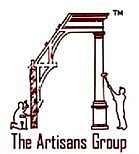During a recent conversation with a friend who had purchased a small construction company he mentioned in passing that one of his employees had injured his ankle on the job but didn't report it to
his work comp carrier as it was a minor incident, no days off work, didn't want his rates to go up, why
bother. All is good. Right?
Over the years I've been in safety I've encountered businesses (usually small, say 10-100 employees)
who have experienced a couple of injuries at work, nothing serious, thought it was simply an unhappy
part of doing business. All is good. Right?
Not right. Recently I was a safety expert in a law suit for an alleged breach of contract law suite initiated
by a contractor to an oil and gas company. Multimillion dollar/year contract. During the first nine
months on the job contractor experienced a handful of minor injuries. Nothing out of the ordinary or so
the contractor thought. Oil and gas company terminated their contract due to contractor's TRIR and
EMR.
The importance of safety in any industry (mining, manufacturing, construction or oil and gas safety) has
moved into a leading role in business. If you are asking "how so" as you read this, well read on.
Many large companies seeking to hire contractors for work ask for TRIR's and EMR's before letting work.
If your TRIR or EMR are too high, no work. Do you know what a TRIR is? Bet you know what an EMR is,
especially if you write the work comp premium check. But do you know what factors influence an EMR?
An independent safety professional can answer these and other questions for you. Help you understand
the world of safety. Remove the frustrations and hassles involved in worker injury, accident caused
damage to equipment and related (high) costs of these occurrences. Pay only for what you need.
An independent safety professional can explain what a TRIR or EMR is and what factors go into these
two simple but very influential factors. You need to know how to reduce the likelihood of injury or
equipment accidents (training and field review audits for example). Knowing how to identify and
remedy hazards on the job. (JSA's are helpful here. Do you know what a JSA is?)
Do you have a written safety plan? Are you providing safety training to crews/employees? Did you
know you must provide PPE for your employees? (Know what PPE is?) Did you know that OSHA changed its incident recording criteria effective January of 2015? Have you had any employees injured on the
job? How seriously were they injured? Have any equipment accidents? What does it cost to repair a
front end loader or a truck?
Don't think you can afford an independent safety consultant? Au contraire. The independent safety
professional helps you to the extent necessary catering their time as is necessary to get your safety
program up and running. You pay for what you need to avoid costing for what could be avoided. In
short, you know what a safety professional costs: You don't know what an incident will cost.
Avoid the high cost in injury, damage to your good name and loss of business opportunities. The
independent safety professional can save you money.
Greg Gerganoff, ASP, CSP, Esq., is an OSHA / MSHA Safety field and compliance expert with experience in the heavy construction, oil and gas, mining, pipeline, and trenching and excavation industries.
©Copyright - All Rights Reserved
DO NOT REPRODUCE WITHOUT WRITTEN PERMISSION BY AUTHOR.










